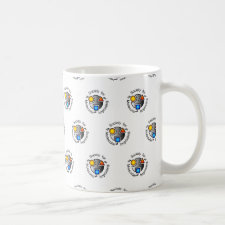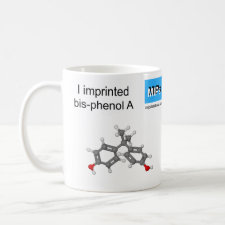
Authors: Xiong Y, Ye ZB, Xu J, Liu YC, Zhang HY
Article Title: A microvolume molecularly imprinted polymer modified fiber-optic evanescent wave sensor for bisphenol A determination.
Publication date: 2014
Journal: Analytical and Bioanalytical Chemistry
Volume: 406
Issue: (9-10)
Page numbers: 2411-2420.
DOI: 10.1007/s00216-014-7664-4
Abstract: A fiber-optic evanescent wave sensor for bisphenol A (BPA) determination based on a molecularly imprinted polymer (MIP)-modified fiber column was developed. MIP film immobilized with BPA was synthesized on the fiber column, and the sensor was then constructed by inserting the optical fiber prepared into a transparent capillary. A microchannel (about 2.0 μL) formed between the fiber and the capillary acted as a flow cell. BPA can be selectively adsorbed online by the MIP film and excited to produce fluorescence by the evanescent wave produced on the fiber core surface. The conditions for BPA enrichment, elution, and fluorescence detection are discussed in detail. The analytical measurements were made at 276 nm/306 nm (λex/λem), and linearity of 3 x 10-9 - 5 x 10-6 g mL-1 BPA, a limit of detection of 1.7 x 10-9 g mL-1 BPA (3σ), and a relative standard deviation of 2.4 % (n = 5) were obtained. The sensor selectivity and MIP binding measurement were also evaluated. The results indicated that the selectivity and sensitivity of the proposed fiber-optic sensor could be greatly improved by using MIP as a recognition and enrichment element. Further, by modification of the sensing and detection elements on the optical fiber, the proposed sensor showed the advantages of easy fabrication and low cost. The novel sensor configuration provided a platform for monitoring other species by simply changing the light source and sensing elements. The sensor presented has been successfully applied to determine BPA released from plastic products treated at different temperatures
Template and target information: bisphenol A, BPA
Author keywords: Fiber-optic sensor, bisphenol A, Evanescent wave, molecularly imprinted polymer



Join the Society for Molecular Imprinting

New items RSS feed
Sign-up for e-mail updates:
Choose between receiving an occasional newsletter or more frequent e-mail alerts.
Click here to go to the sign-up page.
Is your name elemental or peptidic? Enter your name and find out by clicking either of the buttons below!
Other products you may like:
 MIPdatabase
MIPdatabase









